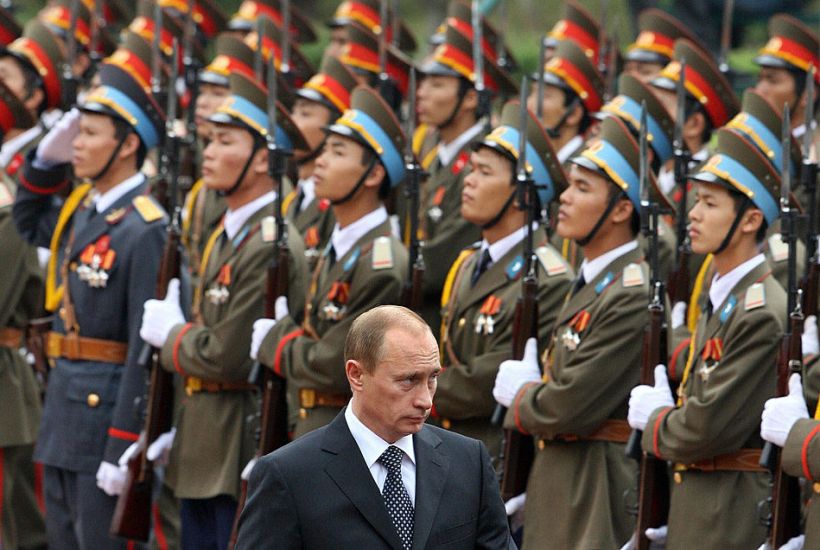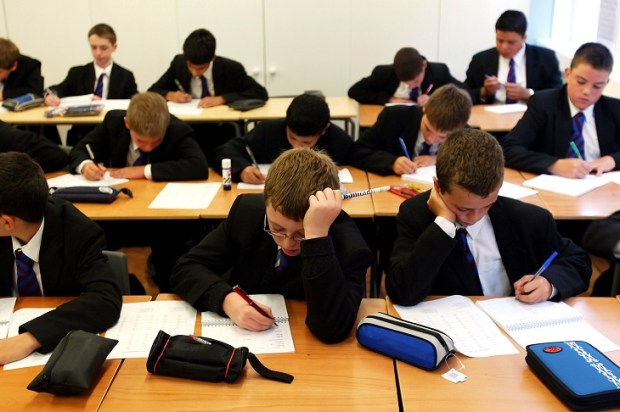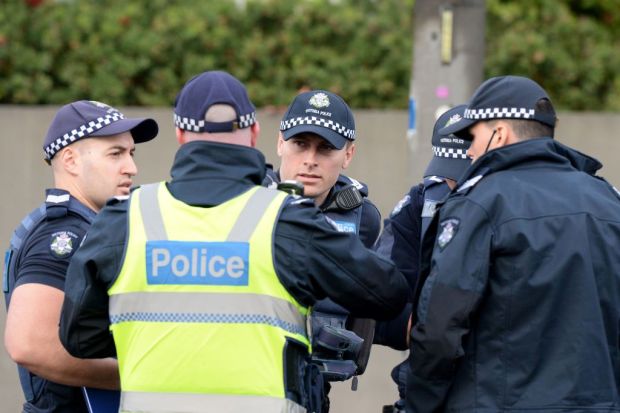The decision by President Trump to bomb the Syrian military airfield that launched chemical weapons against Syrian civilians in April has been universally greeted as an appropriate response. Whatever declarations of red lines are made or not, the use of chemical weapons against a civilian population in the course of war is beyond the pale. Their use must be deterred by those who can create consequence, or they will become a new and terrible norm.
This view of chemical weapons is generally accepted but for 3 nations: Russia, Iran and Syria itself of course.
There are a number of known interests and benefits for Russia not worrying about Assad’s use of chemical bombs in winning the civil war and Syria remaining in the Russian orbit as a vassal-state. Atop this list is a new naval base in the Syrian Mediterranean port of Tartus – the only warm water base for the Russian navy.
Having carpet bombed Chechnya during two wars (first in 1994-1996, and then again in 1999-2006), and now Aleppo in this war, Russia is no paragon of virtue when it comes to mass slaughter. Russia has never raised an eyebrow at the number of chemical attacks Syrian dictator Assad has undertaken during the six-year civil war. Indeed, it has vetoed every United Nations Security Council resolution seeking to investigate or condemn Syria.
Tensions between Russia and America over Syria have been markedly escalating. While Russia has a decidedly different view about the Syria conflict than America, it certainly is not about the laws of war. Something more fundamental is at play.
The current ‘cold war’ is a fight for the very soul of international order: a US-led Liberal rules-based international system or a Russia-led illiberal system of authoritarian regimes.
The choice could not be clearer and the stakes could not be more important.
The current battle over Syria, in which the US is a significant but secondary player, has raised tensions over this choice in ways that are signalling a return to the cold war, with the drums of a hotter war beating a background cadence.
A recent article provides great insight into what is driving Russian interests in Syria and larger Russian foreign policy, and how this particular view of the world translates into Russian approaches to the current fight for dominance in the international system.
Appearing in the Military Review Journal, Charles Bartles, a Russian linguist and military expert summarises a series of Moscow Defence Ministry Conference presentations held in 2013 by the Russian Chief of the General Staff General Valery Gerasimov.
Understanding General Gerasimov’ presentation is vital to understanding the Russian approach to contemporary international issues.
Gerasimov argues that the sea-change in international affairs began with the breakup of the Yugoslavian State in the 1990’s. From a Western perspective, NATO intervened militarily to prevent mass genocide being perpetrated by Serbia. But it intervened without United Nations Security Council authorisation.
From a Russian perspective, Serbia, a close ally sharing a common Slavic heritage with Russia, was “simply being punished for engaging in counterterrorism operations, albeit with some excesses…The [NATO] action set a precedent for external actors to make decisions about the internal affairs and territorial integrity of sovereign nations alleged to have committed some wrong.”
This is the critical point that Gerasimov returns to, and within which his view of the West is hinged: external interference by the US/NATO in sovereign nations that cause these nations to break-up or change to a pro-Western regime.
From a Russian perspective, and following the partition of Yugoslavia, the US undertook regime change wars in both Afghanistan and Iraq. The US foreign policy pattern, according to Gerasimov, became very clear:
- Decide a regime change
- Search for a pretext to launch a military operation, eg stopping mass slaughter or seizing Weapons of Mass Destruction
- Launch a military operation
- Change regimes (to more pro-Western)
And then, to the Russian view of thinking, the US doubled down on their initial successes and instigated the so-called ‘Colour Revolutions’ in Georgia in 2003 and Ukraine in 2004, all occurring in Russia’s traditional international ‘sphere of influence’.
It is worth quoting Bartles’ summary of Gerasimov and the Russian political-military view of these East European uprisings at length:
Instead of an overt military operation, the first volleys of a US attack [now] come from the instalment of a political opposition through state propaganda (eg CNN, BBC), the Internet and social media, and nongovernmental organisations (NGOs). After successfully instilling political dissent, separatism and/or social strife, the legitimate government has increasing difficulty maintaining order. As the security situation deteriorates, separatist movements can be stoked and strengthened, and undeclared special operations, conventional and private military forces (defense contractors) can be introduced to battle the government and cause further havoc. Once the legitimate government is forced to use increasingly aggressive methods to maintain order, the United States gains a pretext for the imposition of economic and political sanctions, and sometimes even military sanctions such as no-fly zones, to tie the hands of the besieged government and promote further dissent. Eventually, as the government collapses and anarchy results, military forces under the guise of peacekeepers, can then be employed to pacify the area, if desired, and a new government that is friendly to the United States and the West can then be installed.
And then the West, according to Gerasimov, expanded on the successes of the ‘Colour Revolutions’ in another vitally strategic part of the world – the Middle East. The ‘Arab Spring’ uprisings, fuelled by social media and endlessly praised as the expression of true people-power, began to turn decades-old regime stability on its head. In these uprisings, the use of both social media and the concealed use of military force through the supply of weapons to anti-government forces boldly asserted the seeming right of the West to interfere in countries with no hesitation.
Recall that the Iranian ‘Green Revolution’ of 2009 was hailed as the first Twitter revolution. The Egyptian overthrow of the Mubarak regime in 2013, too, was hailed as a social media triumph. (As a historical aside, it is a direct and unfortunate consequence of Obama’s mishandled foreign policy that both these popular uprisings turned up regimes whose raison d’etre is illiberalism).
But the real change in Russian eyes was Libya in 2011, which finally and fully confirmed Russian fears that the West was fundamentally changing the nature of the international system by stealth through regime change. In fear of a Government declaration of mass slaughter, and with the burden of inaction during the Rwandan genocide clearly in mind, US and Europe attacked Gaddafi’s military forces with a stated intention to force a halt to attacks on Libyan civilians. It did so initially with Russian consent at the UNSC. But then the West went further than the UNSC mandate and supported a complete overthrow of the regime.
As Putin rightly said afterward, in light of the now failed state providing harbour for the worst terrorists on the planet and a source of an endless stream of uncontrolled African refugee flows into Europe, “look at what have you done!”
From a purely Russian perspective, Russian sovereignty is under threat in this new world. And for Putin, as for Xi and Khamenei, the best form of defence is to attack. So it comes as no surprise that the Russians, in particular, meddled in Western nation elections in support of the illiberal populist candidates, such as Trump and Le Pen.
As if confirmation of the worst fears of the Russians needed confirmation, when the protests in the Ukrainian capital Kiev’s main square, the Maidan, broke out in 2014, the steps Russia saw the US adopting elsewhere were themselves adopted by the Russians to great effect. These included employing a shadow army (Russian soldiers without identification) and a suspect vote to ensure the Crimean Peninsula remained part of Russia itself.
The assertiveness of these three most globally significant illiberal regimes remained unchecked under the Presidency of Barak Obama. Witness the Russian takeover of the Crimea, the Chinese takeover of the South China Sea, and the Iranian takeover of Iraq and parts of Syria and Lebanon.
With populism on the rise in the West and a disturbing trend toward isolationism, the price the West will continue to pay for the foreign policy weakness of the Obama years will be commensurately much higher.
After the breakup of the Soviet Union in 1989, the trend to a rules-based international system seemed high. But now that dream is in abeyance and General Valery Gerasimov, the normally straight-faced General of the Chechnya War and mastermind of the breakup of Ukraine, is smiling as never before.
Adam Slonim is co-convenor of the Australia Israel Labor Dialogue and a member of the Advisory Board of the John Curtin Research Centre.
Got something to add? Join the discussion and comment below.
Got something to add? Join the discussion and comment below.
Get 10 issues for just $10
Subscribe to The Spectator Australia today for the next 10 magazine issues, plus full online access, for just $10.


























Comments
Don't miss out
Join the conversation with other Spectator Australia readers. Subscribe to leave a comment.
SUBSCRIBEAlready a subscriber? Log in